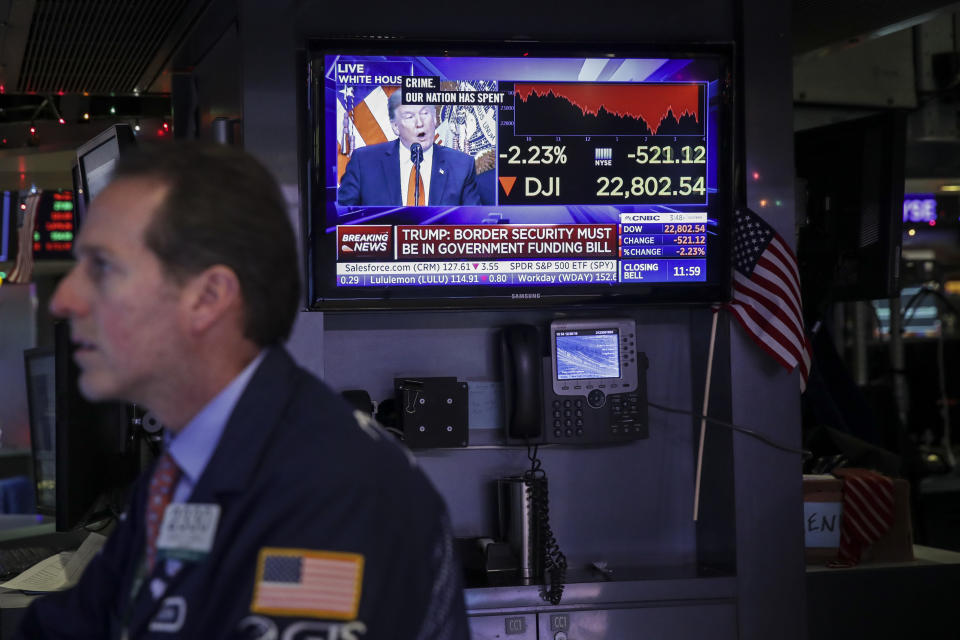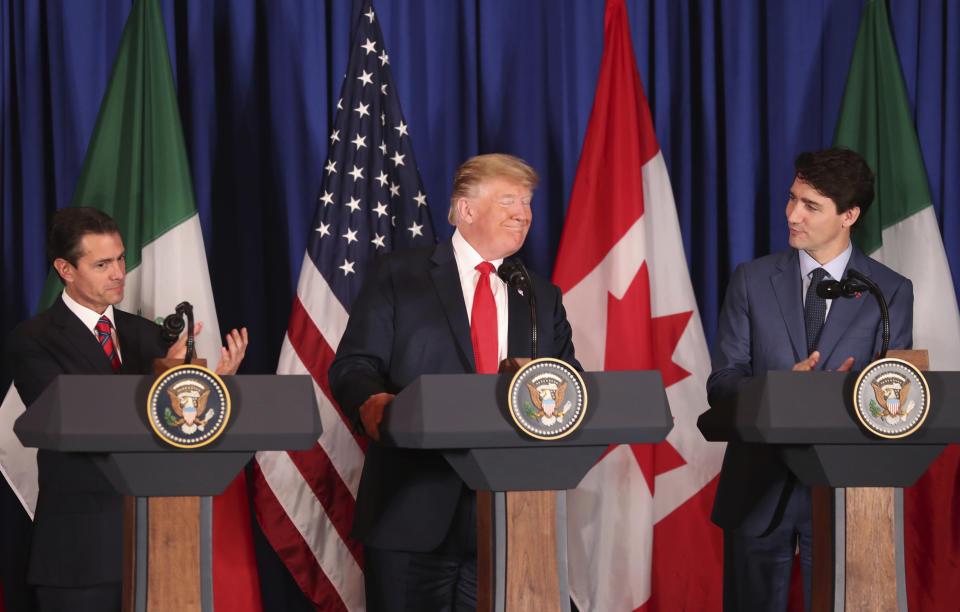Investors are a little too confident that the US-Mexico-Canada trade accord is a done deal

The recently re-negotiated trade accord between the United States and its North American neighbors lacks political support. And the possibility of the pact’s delay or failure may be a risk that markets are underestimating.
As Democrats and Republicans gear up for the hotly contested 2020 presidential election, the U.S.-Mexico-Canada Agreement (USMCA), which replaces NAFTA, is in at least some trouble among key constituencies.
Currently, the world’s attention is being diverted by the protracted bilateral trade negotiations between the U.S. and China. Against a backdrop of a decelerating global economy and President Donald Trump’s well-chronicled antipathy toward free trade, some believe investors could be in for a rude awakening if the USMCA is either delayed or fails to pass Congress.
“Everyone thought it was done. It’s not done.”
“When the three countries signed the agreement in principle, it went to the back burner and everyone thought it was done,” noted Dave Donabedian, the CIO of CIBC Private Wealth Management. “It’s not done.”
The Trump administration has identified a vote on the USMCA as a “top priority” for 2019. Yet in an interview with Politico last week, Richard Neal, the chairman of the powerful House Ways and Means Committee cast doubts on the new pact having enough support to win passage this year.
Todd Mariano, a director at Eurasia Group, characterized the USMCA’s passage as “steep but not impossible” in a research note last week.
“Winning congressional approval for the USMCA is important for White House efforts to keep the electoral impact of trade policy positive, with the biggest stress test yet looming in 2020,” he added.
With a Democratic-led Congress loathe to hand Trump a victory as the 2020 campaign for the White House shifts into high gear, Neal told Politico that the administration’s timetable of a summer vote on the USMCA would be “very hard” to pull off.

At a minimum, it raises the prospect of NAFTA’s successor languishing in Congress, which could pile more uncertainty on a global economy staggered by it. As it stands, world trade flows are already running below trend, according to recent data from the World Trade Organization, and at their weakest levels in nearly a decade.
“The things that move markets are the things that people aren’t focused on, and when they do come into focus it’s an element of surprise,” Donabedian said.
“People are focused on the twists and turns of the soap opera of US-China trade talks, but there are significant hurdles to [USMCA] gaining Congressional approval,” he added. And the legislation’s failure could unsettle investors already concerned about a slowing economy.
‘Nobody wants to renegotiate this thing’
At stake is an agreement that will govern more than $1 trillion worth of flows between the U.S. and its North American neighbors. U.S.-Canada bilateral trade topped $670 billion in 2017, according to figures from the United States Trade Representative’s office, while U.S. goods and services trade with Mexico totaled an estimated $615.9 billion.
Markets upended by the U.S.-China trade fight could be whipsawed anew if the USMCA, which came together only after months of tortured negotiations and Trump’s repeated vows to withdraw unilaterally from NAFTA, falters at the finish line.
“If it looks like the president will follow through on letting NAFTA lapse, that’s a huge market negative,” Donabedian said, adding that a USMCA ratification appears priced in at the moment.
Meanwhile, with U.S. steel tariffs still an outstanding issue, neither Mexico and Canada are seen having the appetite to come back to the negotiating table until that issue is resolved.
“Nobody wants to renegotiate this thing,” said Geoffrey Gertz, a fellow at the Brookings Institution’s Center for Global Economy and Development. “Everyone’s dreading the idea” of hammering out a new USMCA, or having to contain the fallout from its failure, he added.
Getting Congress to approve trade deals “is always very difficult, and takes a long-term strategic approach by White House,” Gertz said. “It’s not clear they’ve been in a position to do that.
The administration has worked hard to mollify the concerns of auto workers, perceived as one of the USMCA’s largest beneficiaries. After a meeting in Detroit with U.S. Trade Representative Robert Lighthizer last week, the United Auto Workers expressed some doubts about the pact in its current form, but haven’t publicly opposed the deal.
“Consideration of scenarios for post-2020 Washington will be part of the decision-making process for Democratic lawmakers and labor unions,” Eurasia’s Mariano said. “Delivering USMCA will be an important part of Trump’s message in states where he will likely be vulnerable.”
Those states include Texas, Ohio, Michigan, Indiana, and Illinois, the analyst added.
—
Javier David is an editor for Yahoo Finance. Read more:
Wall St mulls sub-2% U.S. growth as consumers cut back on spending
Here's why almost nobody likes the ECB's 'roach motel' cheap money policy for banks
Follow Javier on Twitter: @TeflonGeek

 Yahoo Finance
Yahoo Finance 
